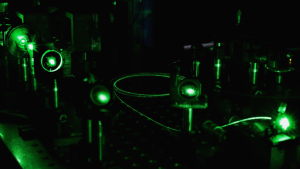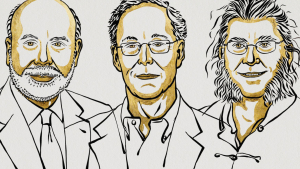Experts have made so many new discoveries in the 20th and 21st centuries and have accumulated more knowledge than probably never before. But progress in research is apparently slowing down, as Russell Funk from the University of Minnesota and two of his colleagues report in the journal "Nature". In a period of more than 60 years, the number of groundbreaking discoveries and patents in numerous disciplines has fallen. The working group cites the reasons for this development as the fact that researchers today have to acquire much more knowledge than before in order to gain new insights at all and to be able to develop new technologies.
For their study, the three scientists evaluated around 25 million specialists from a period from a period from 1945 to 2010 - as well as around 45 million patents from the period from 1980 to 2010. They used the databases »Web of Science« and »Patents View« of the US patent. They also checked their results using other online libraries and abstract collections such as »Jstor« or »Pubmed«, which included a total of 20 million studies.
In order to measure whether and how the number of new discoveries and patents has changed over the decades, Funk and his colleagues used a corresponding benchmark, the so-called CD Index. This is based on the type of scientific progress: On the one hand, there are findings that confirm existing knowledge and thus underpin it. On the other hand, new results can refute the current state of knowledge and lead to a research breakthrough. Funk and Co measured the difference by whether study authors refer to preliminary work or not. If groundbreaking findings succeed, the refuted studies are cited less frequently.
Too much knowledge and too specialized
According to Funk and his colleagues, the same knowledge has become less. Experts would expand existing knowledge much more often. This is because you are dealing with smaller areas in your specialist discipline than before and also not all publications on a topic. In the social sciences, for example, almost 92 percent less groundbreaking studies appeared between 1945 and 2010. In the case of patents, this value is 91.5 percent in the area of medicine, in the case of computer and communication technology almost 79 percent.
The average quality of the work would not have changed over the decades. Rather, scientists would use fewer previously published studies for their research and increasingly cite the same papers. In addition, they would cite themselves more often, thus expanding their own level of knowledge less. In addition, researchers barely managed to keep up with the high number of publications.
"Innovations are mainly created by trying new things or ideas from other disciplines and then seeing what happens," says co-author Michael Park, according to a press release from the University of Minnesota. "But if you have to constantly worry about publishing study after study as soon as possible, there is much less time to do thorough research and think about the big problems that could lead to breakthroughs." That is why Funk and his colleagues propose that universities and scientific institutions give researchers more opportunities for undisturbed research time and use the number of papers rather than their quality as a benchmark for good science. In this way, existing knowledge could be expanded to the same extent and revolutionary results could be achieved.



















